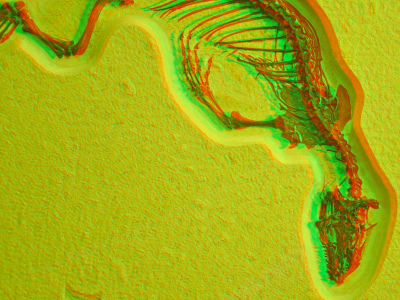What it’s like to be a Fellow if your background is in humanities
Posted on 12 December 2018
What it’s like to be a Fellow if your background is in humanities
 Image by relaxednow.
Image by relaxednow.By Iza Romanowska, Barcelona Supercomputing Center.
If someone told me five years ago that I would be a Fellow of any organisation with the word ‘software’ in it, I’d just laugh. Yet, it turns out being a diehard humanities person does not save you from the academic inevitability of engaging with research software. So once you realise that, you can just try to do it well, and there is no better place to learn how to deal with research software than the Software Sustainability Institute.
In 2015 I applied to be a Software Sustainability Institute Fellow mostly on the premise of ‘let’s give it a shot’. To my surprise, a couple of months later I was doing a little victory dance in front of my laptop when the acceptance email appeared in my inbox. Things moved at a rapid pace from that moment on. The Institute Fellowship is a combination of events you attend and events you organise – all under the unifying theme of ‘make research software great or at least better!’. In the first few months, I attended the inaugural Fellows meeting and the Collaborations Workshop 2016 in Edinburgh. What was most striking for me was that there were quite a few Digital Humanities researchers and that we were treated as equals; that is, as representatives of yet another scientific discipline that uses research software. For a person that is usually regarded as ‘the weirdo that does computers’ in humanities and as ‘the weirdo that reads books and is clueless’ in computer science, this was refreshing.
I used the Fellowship grant to organise two workshops dedicated to teaching archaeologists a particular simulation technique: agent-based modelling (ABM). This will sound surprising to anyone outside of humanities but in my research community hypotheses and models are still largely formulated as essays (or even books!) so it is very difficult to filter the good ones from the bad ones or to compare them to the data. Over the two events, I trained more than 50 archaeologists in a technique that enables exactly that: formalising conceptual, verbally defined models into code and testing them against each other and against the data. This is 50 more people that understand the process of building research software and, at least, have been told how to make their software sustainable in the long run. Some of them have since completed PhDs with a simulation component, applied for research grants where simulation features prominently and went on to teach others that ‘No, no, no! Not sharing your code is not ok’.
If you are a humanities researcher, you may wonder why you would want to apply for the Software Sustainability Institute Fellowship. Will it help you be a better scientist? Will it get you a job? I see two main types of benefits of being a Software Sustainability Institute Fellow: the tangible and the not-that-tangible ones. The former are easy to identify. You get a considerable amount of money to run an event (or a series of events) that will benefit you and your research community. But the non-tangible benefits vastly outnumber the practical monetary value of the Fellowship. Every fellow is different but for me the three most important outcomes of the Institute Fellowship were the network, the recognition and the skills.
First, the network. Since my work is done in archaeological departments on archaeological projects, I can give you contact details to a ceramics specialist or a world expert in Aztec rituals any time of the day or night. Someone that can help with implementing code in C? Not so easy. The Fellowship is a gate to a large and diverse research community that transverses across disciplinary boundaries. Having access to it is invaluable.
Second, the recognition. Most academics struggle with the impostor syndrome – the feeling that you are less of an expert than people think. This feeling can be particularly acute if you are one feet in humanities and the other in hard sciences. As a Software Sustainability Institute Fellow, your expertise is recognised for what it is – you may not be able to code in Fortran but that does not make you any less of an expert in humanities research software. This recognition will also come from other people and can make it easy to apply for a more diverse range of jobs.
Finally, the skills. We all know that if you write code you need to do some testing, have it documented, make it open source, this version control thing, etc. Perhaps if we all had 20 years to do a PhD and unlimited funding thereafter we could actually self-teach ourselves how to do all of it in practice. As a Fellow, you will have access to training events, materials and people saving you time and unnecessary frustration.
The Software Sustainability Institute Fellowship is a grant opportunity so why not ‘give it a shot’?
Questions about the Programme should be directed to fellows-management@software.ac.uk.
